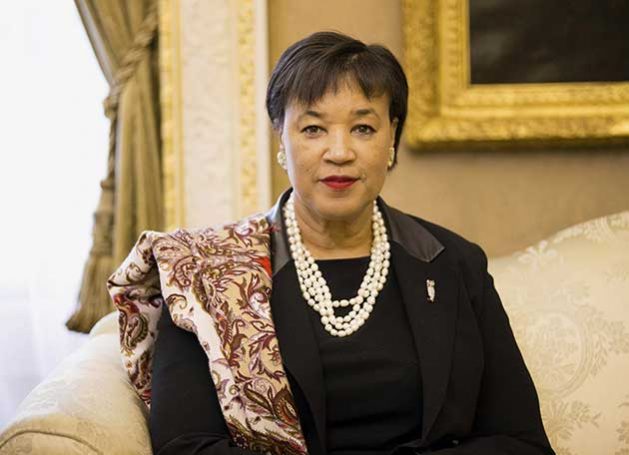To Build Back Better from the Pandemic, We Must Overhaul the Way We Deal with Development Finance

LONDON, Jun 25 (IPS) - Over the past 18 months, the impacts of the coronavirus pandemic have transformed our lives and prompted a period of deep reflection as a global community. In some sense, we are only now starting to understand our vulnerabilities, and in particular, how deeply exposed and interconnected we are as people, communities and as countries.
At the same time, the pandemic has been a stark eye opener on our capacity to deal with the risks and shocks, at both individual and country level. The experience has shown us our vulnerability, and comparatively, our resilience is only partly determined by our income or economic status.
For small states in particular, the focus on Gross Domestic Product (GDP), a figure which sums up the economic strength or income of a country, can never fully reflect the potential impact of external shocks outside the control of any government. A country’s high income, for example, does not negate its vulnerability to climate disasters, which can reverse years of development gains overnight.
In other words, measures such as GDP, or other equally narrowly focused economic statistics only provide us part of the picture. We need much more nuanced and comprehensive measurements and indicators to assess our full risk factors, and more precisely, our susceptibility to harm.
This has been regrettably demonstrated by the ongoing pandemic, during which as someone recently noted, ‘while we are all in the same storm, we're not all in the same boat.’
GDP was settled upon as the simple and translatable measure of economic progress over 75 years ago, with the establishment of the Bretton Woods institutions.
It has certainly been a useful measure, yet most economists and experts today would agree that it is not the best measure of a nation, whether in terms of its economic progress, its sustainability or its potential. Put frankly GDP is too blunt a tool to serve as the only measure of success and progress, especially in these times of rapidly accelerating economic, social and environmental change.
We face a much more complex world than we did decades ago, a world which is also much better understood, and more thoroughly analysed any point in our history. And we need to update the tools we use to tackle this new world in a way that is fit for purpose. Big data, analytics, and Artificial Intelligence permeate every aspect of many of our lives. And yet, when it comes to development finance, we still rely singularly on an incomplete GDP figure to assess what type of funding countries should get, and how much.
This is why the debate has been building around new ways to assess less-developed and at-risk countries, and how they can be best supported by international financial institutions. It is also why the Commonwealth alongside many organisations, including the UN, has started to consider other more nuanced and constructive ways of assessing nation states and vulnerabilities.
The Commonwealth has approached this debate objectively, not to be swayed by one interest or group but to use rigorous analysis to lead an open discussion about how best to target support the poorest and most vulnerable nations in the world.
With over a third of the world’s sovereign nations as members, including 32 small states, and approximately 2.4 billion people living in the Commonwealth, we have a duty to address and advise on these issues, and to find consensus on a way forward.
In this vein, I am immensely proud of the work done by my team to produce the Commonwealth’s Universal Vulnerability Index for consideration by Commonwealth member countries. This Index, which weights country's vulnerability against their built up and policy-related resilience, will give policymakers and financial institutions a sound tool by which to assess who is most in need of support.
And if adopted, we are convinced that the Index will transform the way we invest and deliver finance to developing countries.
One thing is clear. As we emerge from this crisis, we cannot return the business as usual. In order to respond effectively as an international community to the interlinked global crises confronting us today, we must overhaul the way we think about development finance, particularly in the post COVID world. We need to move beyond the thin analysis that GDP and per capita income provides us and to come up with a new way of determining the type of support vulnerable countries could receive. It is crucial that we do better, and we indeed can, through a tool such as the Universal Vulnerability Index.
Follow @IPSNewsUNBureau
Follow IPS New UN Bureau on Instagram
© Inter Press Service (2021) — All Rights Reserved. Original source: Inter Press Service

